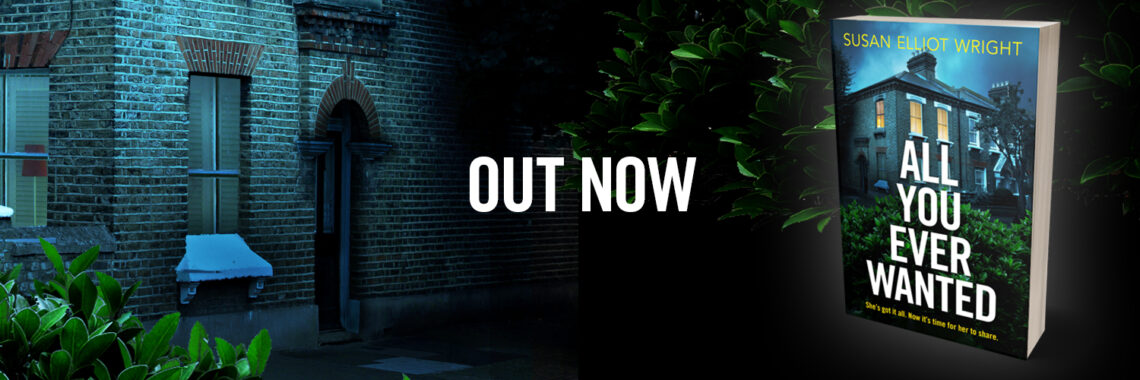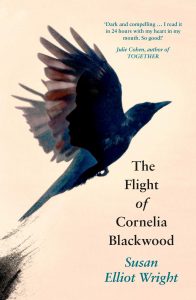Ten years ago next week, my debut novel, The Things We Never Said, was published. To my utter astonishment it instantly became a bestseller, so I’m doing a little blog post to celebrate. I guess I’m celebrating ten years as a published novelist, but I also want to celebrate the book itself. It still sells well on Kindle and in audiobook, and is much-borrowed in libraries, but the paperback is now print on demand, so it’s more expensive! However, I do get an author discount, so I’ve splashed out and bought some copies to give away on my Facebook page
What it’s about
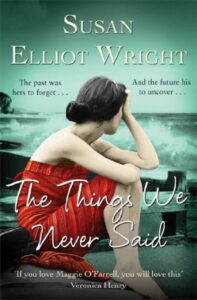
The Things We Never Said
In 1964, Maggie wakes up in an asylum with no idea who she is or why she’s there. Little glimpses of memory tantalise her – a roaring gale, a sickly baby. Then one night, a word in an overheard conversation on the ward suddenly brings the devastating truth flooding back.
In 2010, Jonathan and his wife are expecting their first baby. His difficult relationship with his own father means he’s already worried he won’t be a good dad, then a knock on the door from a cold case detective throws his life even further into turmoil. Jonathan’s familial DNA is linked with a decades-old crime
‘If you love Maggie O’Farrell, you will love this’ Veronica Henry
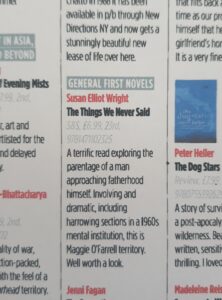
Review in The Bookseller
The book seemed to touch the hearts of readers in a way I could only have dreamed of. Being my first novel, it took years of blood, sweat and tears (well, certainly tears!) and what felt like endless writing and rewriting before it was in good enough shape to start approaching agents.
I knew getting published wasn’t easy, so I braced myself for rejections. And they came. Plenty of them. But then came the call from my agent telling me that Simon & Schuster were interested. ‘But don’t open the champagne yet,’ she cautioned. The editor and the fiction team loved it, She told me, but the acquisitions meeting the following day, and nothing was certain until then.
I was working as a chef at the time, catering weddings, and the next day, I don’t know how I didn’t end up putting salt in the meringues and sugar in the potatoes. I checked my phone a hundred times, but by the time I finished my shift at 3pm, I still hadn’t heard. I went home and took the dog for a walk. We’re in the park, he’s just done a massive poo (big dog, big poo) and I’m just bending down, poo bag stretched over my hands thinking, this would be about the worst possible time for my agent to call…
The news I’d been waiting for
Have you ever tried to sound excited but completely professional while tying up a bag of warm dog poo? Anyway, the news was good – a two-book deal – and it was all systems go on the champagne. It was a long time to wait before I was able to hold the book in my hands, but eventually, the months passed, and it was published,
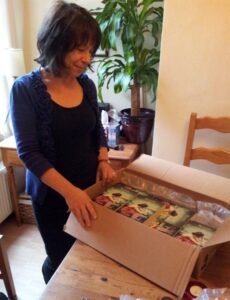
It’s a real book! The great unboxing
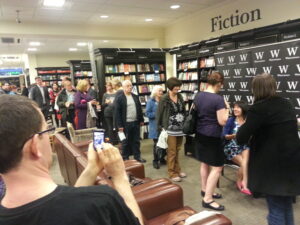
Book launch at Waterstones
Readers loved it, and it got shortlisted and long listed for a few things, including the RNA Contemporary romantic novel of the year (NB I don’t think it’s romantic, though it does have a strong relationship that withstands considerable pressure). I got to speak at libraries and events, and all in all, I had a brilliant time.
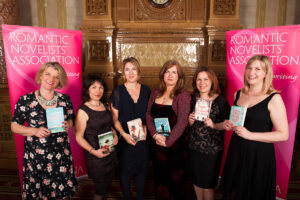
With other shortlisted authors at RONAs award ceremony 2014
But the absolute best thing of all was the amazing emails I received. ten years on, I still get messages about this book, though these days it’s usually via social media. One that sticks in my mind was from a woman who said the book had reignited her love of reading after a long period where she’d been completely unable to engage with the book. Most of the messages are from women, although I’ve had some lovely comments about this novel from men, too.
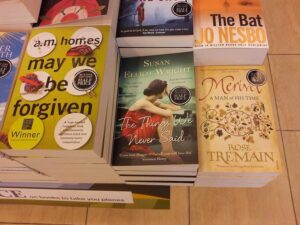
In good company on the Waterstones front table!
Since then…
My fifth novel, All You Ever Wanted was published last year, and my fourth, The Flight of Cornelia Blackwood was published ‘to acclaim’. I’m probably a better writer now than I was then, but there seems to have been something about this book that captured the imagination and brought me readers who have since gone on to buy all my novels. Which is why I’ll always have a soft spot for my ‘first baby’, and why I might just open another bottle of champagne on its tenth birthday. If you’d like to read it now, try your luck in the giveaway by going to my Facebook page or buy it on Audiobook or on Kindle
If you’d like to know more about me and my books, have a look around my website
